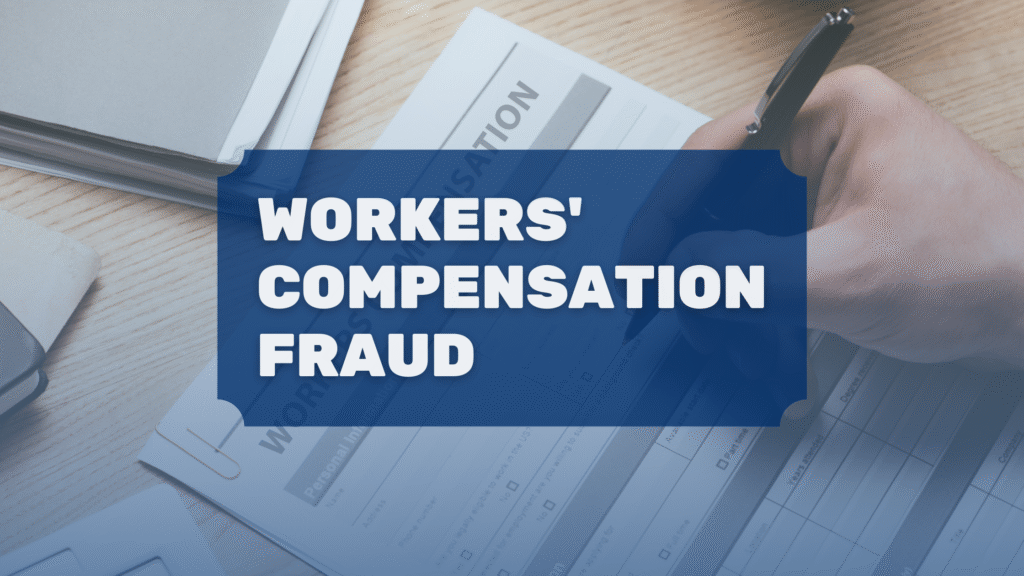May 05, 2025 | JacobiJournal.com – Workers comp fraud oversight could soon tighten in California, addressing one of the state’s most persistent cost drivers in the insurance system. On May 5, 2025, lawmakers introduced SB 536, authored by Senator Bob Archuleta (D), to significantly expand fraud reporting requirements and allow greater data-sharing between agencies.
The measure seeks to close long-standing enforcement gaps by integrating the Employment Development Department (EDD) into the existing reporting network. Supporters argue that by giving investigators broader access to payroll data—while maintaining strict privacy safeguards—the bill could help uncover fraudulent schemes earlier, prevent premium underreporting, and reduce financial losses that ultimately impact honest employers and employees.
EDD Added to Workers Comp Fraud Reporting Network
Currently, insurers and licensed rating organizations are required to report suspected fraud to local district attorneys and the Department of Insurance Fraud Division. SB 536 would broaden this reporting chain by adding the Employment Development Department (EDD) as a mandatory recipient of these referrals.
The inclusion of EDD is intended to close long-standing enforcement gaps. Payroll fraud, such as underreporting employee wages or misclassifying workers to reduce insurance costs, frequently overlaps with workers comp fraud schemes. By having EDD directly notified of suspected fraud, investigators can cross-reference wage records, employer classifications, and tax data against insurance filings.
This coordinated approach could help uncover fraud patterns that might otherwise go undetected when agencies work in isolation. For example, if an employer reports lower payroll figures to an insurer but higher amounts to another agency, that discrepancy could flag potential premium fraud. With EDD in the loop, such inconsistencies can be investigated more quickly, reducing the time it takes to build a prosecutable case.
Insurers to Gain Limited Access to Payroll Records
For the first time, SB 536 would allow insurers and rating organizations to request payroll data from EDD. This data could help verify suspected premium fraud. However, there are limits.
The bill clearly states that personal identifying information must remain confidential. Insurers can only share data with law enforcement when submitting a formal fraud referral. This ensures that investigations are balanced with worker privacy.
Improving Investigations While Preserving Rights
By giving investigators access to more complete data, SB 536 aims to improve fraud detection. At the same time, it reinforces safeguards to protect workers’ personal information.
The bill is set for a hearing in the Senate Appropriations Committee on May 12, 2025. If passed, it could enhance fraud prevention and reduce premium inflation for honest employers.
More information available here: Official Document.
FAQs: About SB 536 and Workers Comp Fraud Reporting
What changes does SB 536 make to workers comp fraud reporting?
SB 536 adds the Employment Development Department to the workers comp fraud reporting network, allowing for better detection of overlapping payroll and premium fraud.
Why is the EDD’s involvement important in workers comp fraud cases?
EDD’s access to payroll data can help identify workers comp fraud more quickly, especially when it overlaps with payroll tax violations.
How could SB 536 impact future workers comp fraud investigations?
By expanding data sharing and reporting requirements, SB 536 could make workers comp fraud investigations faster and more accurate while protecting worker privacy.
Bookmark JacobiJournal.com for expert coverage of legislative developments, fraud enforcement cases, and policy reform that affect California’s workers’ compensation landscape. From court rulings to committee hearings, we keep professionals informed and prepared.
🔎 Read More from JacobiJournal.com:
- Court Rejects Carpool Exception to Going-and-Coming Rule, No Liability Found
- San Joaquin County DA Secures Felony Conviction in Workers’ Comp Fraud Case
- Fired State Employees Exposed Personal Data of 33K Texans
- Investigators Tie Trio to $2.4 Million in Losses Across Southern New England
- Heritage Sues Adjuster for Libel Over ’60 Minutes’ Report






